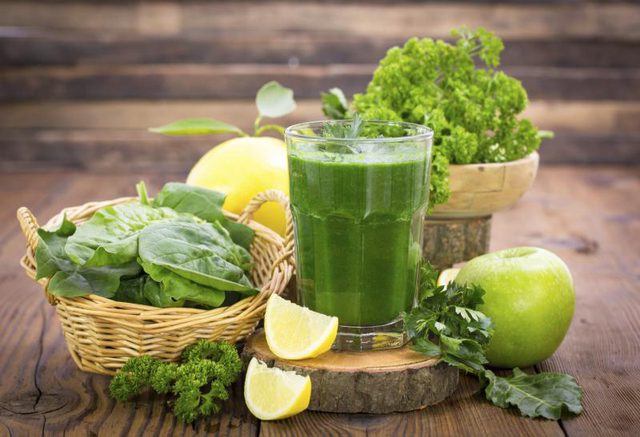The Path to Detoxification, Cleansing your Liver
Written by Dr. Georgia Tetlow, MD and Clare Abercrombie, BS Recipes and nutritional advice by PIM Nutritionist Danielle Huntsman, MS, AADP
As our next group class on detoxification approaches, I wanted to write a series of posts on the benefits of cleansing or detoxifying our bodies. I know the holidays are quickly upon us and with that comes the joy, merriment, and possible dietary temptations of the season. I wanted to write this post on the benefits of cleansing your liver, for long-term overall health. So, consider reading this post, and storing this information until after the holiday season, when we can start the new year with a fresh sense of renewal allowing us to both detox our bodies and minds.
Let’s explore the liver…
The liver, seated on the right side just below our lungs, is the largest internal organ in your body. The liver degrades and detoxifies substances such as environmental and chemical pollutants, as well as functions as a gland, releasing specific chemicals responsible for the composition of cholesterol, triglycerides, glycogen, and albumin (an essential protein). Many vitamins and necessary chemical compounds are stored in the liver such as: folic acid, Vitamin A, D, K, and B12. It helps to regulate blood sugar, process nutrients, and absorb vitamins and minerals. The function of the liver is multifactorial and vital to overall health, so let’s nurture and improve the health of this organ.
The are a number of steps you can take to minimize liver damage both short-term and long-term as well as introduce agents that aid in liver support/function. There are a few dietary and environmental changes we recommend in order to support your liver:
What to introduce:
Why do we recommend warm water with lemon in the morning? It is important to drink enough fluid during the day to support detoxification. Adding juice of a lemon to a glass of warm water first thing in the morning can help stimulate bile production, continuing to support detoxification and elimination of toxins. Lemons also have a bitter quality; naturally stimulating gastric juices and saliva, which are important in preparation for digestion. Lemons are naturally antiviral and antibacterial, and have positive benefits on the metabolism, and boosting the immune system.
Supportive vegetables and vegetable juices such as cabbage, dark leafy greens, brussel sprouts, and cauliflower are of key importance. Not only do you need to introduce organic low sugar vegetable juices but you need to focus on two key elements: increasing quantity and focusing on better quality. Increase potassium rich foods such as bananas, sweet potatoes, beet greens, spinach, beans, and black strap molasses. Consider incorporating coffee enemas into your beauty regiment. Eat more high quality, grass-fed, pasture raised, organic animal liver or liver capsules. Lastly, introduce herbs such as milk thistle, dandelion, and the turmeric extract (curcumin), to achieve optimal liver function.
Cruciferous Vegetables: (Brussels Sprouts, Cabbage,Broccoli, Cauliflower etc.) High in B6 as well as helpful in supporting flushing out toxins in your body.
Sulfur Rich Vegetables: Watercress and Radishes
Garlic: High in alliciin & Vitamin B6, which activates liver enzymes to help liver cleansing
High fiber foods: fiber binds to toxins and eliminated them through the GI tract (vegetables, chia seeds, flax seeds, psyllium, fruit)
Green Tea: High in antioxidants, one being: catechins, which is known to support liver function.
Dark Leafy Green Vegetables: High in Magnesium and Folate, both important for phase I.
Herbs to Support in Detoxification: Caraway Seeds, Turmeric, Cayenne Milk Thistle, Artichoke Leaf, & Dandelion Root Tea
What to avoid:
Processed foods, hydrogenated oils, deli meats, refined sugars, and alcohol are some of the nutritional components that cause liver damage. Colognes, perfumes, harsh chemicals, cleaning products, detergents, and inorganic skin care/makeup products also have a lasting affect on our overall liver health. Environmental pollutants such as exhaust, smoke, and chemical pollutants tend to affect the health of our liver as well.
Try this liver cleanse before introducing these recommended dietary, environmental, and herbal changes (courtesy of Dr. Axe):
- Dilute cranberry juice with a ratio of 3 parts water to 1 part cranberry juice.
- Add 1 teaspoon of nutmeg, ginger and cinnamon into a tea infuser and let steep in simmering water for 20 minutes.
- Allow to cool to room temperature.
- Add the juice of 3 oranges and 3 lemons and stir. If the mixture is too tart, sweeten with your favorite all-natural sweetener.
- Sip throughout the day.
You should consume a minimum of 72 ounces of this mixture and 72 ounces of water. After 1 day of the cranberry juice blend, reintroduce the foods you ate in preparation for the cleanse.

